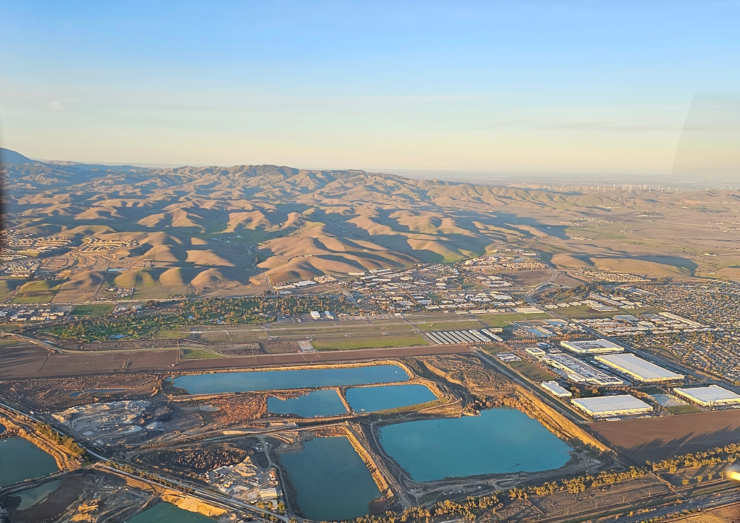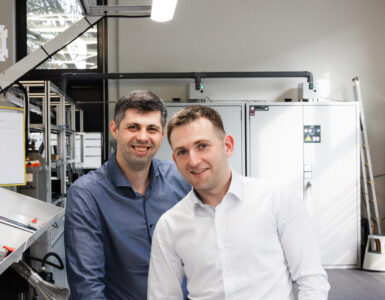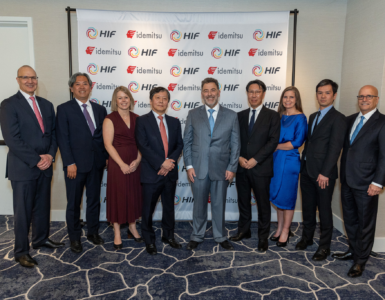ZeroAvia Awarded California Energy Commission Grant to Develop High Efficiency Liquid Hydrogen Refueling Trucks.
ZeroAvia today announced that it has been awarded $3.25 million in funding by the California Energy Commission (CEC) to develop a first-of-a-kind mobile liquid hydrogen (LH2) refueling truck for heavy-duty applications, including aviation and maritime. Funding for the project comes from the Gas R&D Program administered by the CEC and authorized by the California Public Utilities Commission.
Working at Livermore Municipal Airport, ZeroAvia will begin work this month to design, build, and demonstrate a 10,000-liter mobile LH2 refueler with sufficient flow rates to refuel in a similar time as traditional jet fuel refills. Hitting this ambitious target will support hydrogen-powered aircraft in meeting tight turnaround windows, especially in regional transport.
The LH2 refueler will also be designed to improve on existing energy efficiency in LH2 applications, including reducing hydrogen boil-off to less than 0.1% per day.
🔥 What about we co-host a webinar? Let's educate, captivate, and convert the hydrogen economy!
Hydrogen Central is the global go-to online magazine for the hydrogen economy, we can help you host impactful webinars that become a global reference on your topic and are an evergreen source of leads. Click here to request more details
ZeroAvia is developing hydrogen fuel cell propulsion as a solution to tackling the climate impact from aviation. The company plans to support passenger and cargo flights by the end of 2025 with its first hydrogen-electric engines (ZA600) for 9-19 seat aircraft using gaseous hydrogen storage.
To scale hydrogen engines to larger commercial aircraft and to enable longer ranges across all aircraft sizes, cryogenic liquid hydrogen must be used to reduce the size and weight of the fuel storage systems. ZeroAvia is already developing its larger ZA2000 engine family, with the first high power ground tests of the fully integrated electric propulsion system conducted earlier this year. These larger aircraft – such as the Dash-8-400 76-seat aircraft ZeroAvia is working on with Alaska Airlines and other partners – will require up to 1 ton of LH2 storage on board to support up to 700 nautical mile range, with target launch in 2027.
The CEC-funded project advances the commercial viability of liquid hydrogen fueled aircraft by supporting advancements in energy performance, cost efficiency, and refueling speed. The technology also has potential application in other segments of the transportation sector, including road freight and maritime.
Val Miftakhov, Founder & CEO, ZeroAvia, said:
Given the gravity of the climate emergency, the rapid acceleration of clean engine technology using fuel cells must be met with optimized refueling technologies and infrastructure to ensure speedy adoption.
“This mobile LH2 refueler project is therefore of essential importance to ZeroAvia, the wider aviation industry, and anybody working to clean up heavy duty transportation.”
Jonah Steinbuck, Director of the Energy Research and Development Division at the CEC, said:
ZeroAvia’s liquid hydrogen refueler project supports greenhouse gas emission reductions in aviation.
“which is particularly difficult to decarbonize- and from the broader transport sector – the largest source of greenhouse gas emissions in California. This technology also holds promise in creating new economic opportunities in California and beyond.”
Pete Sandhu, CEO of Five Rivers Aviation, the Fixed-Base Operator at the Livermore Municipal Airport, said:
Livermore is thrilled to attract the cutting-edge research and development that ZeroAvia is engaged in, leveraging our proximity to two national labs, a well-educated workforce and a capable airport.
“By pioneering clean and quiet aviation technologies, ZeroAvia is making the aviation industry more compatible with and valuable to our surrounding communities. We’re delighted that ZeroAvia’s CEC project will be developed and demonstrated at Livermore to showcase airports as multi-modal hubs for clean and quiet hydrogen-fueled transport.”
Starting operations at Livermore means that ZeroAvia has operations at two California airports – vital experience as it looks to certify its first zero-emission engines. With a track record of being at the vanguard of adopting renewable energy infrastructure and green transportation technology, and a high density of regional airports, California represents a good potential market for adoption of the first hydrogen-electric flights.
READ the latest news shaping the hydrogen market at Hydrogen Central
ZeroAvia Awarded California Energy Commission Grant to Develop High Efficiency Liquid Hydrogen Refueling Trucks. source








